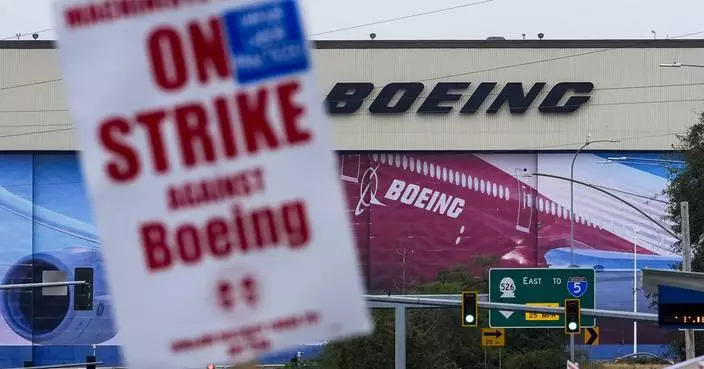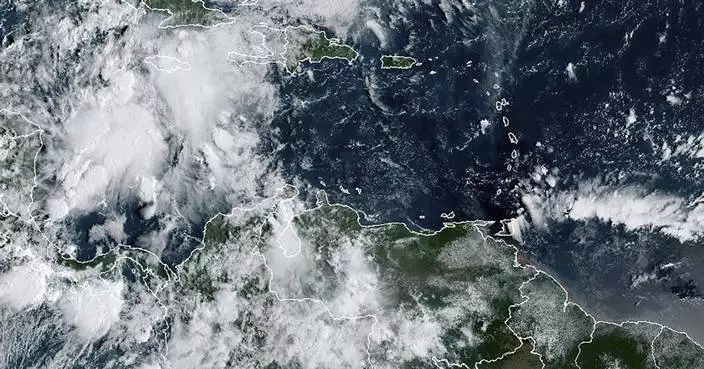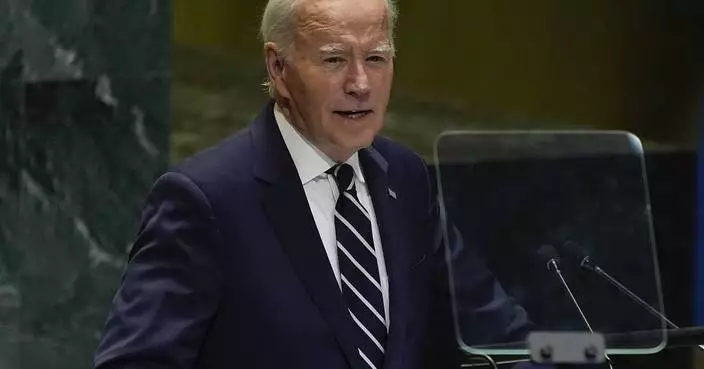The Pac-12 is suing the Mountain West over what it calls an unlawful and unenforceable “poaching penalty” that would cost the rebuilding conference more than $40 million for adding Boise State, Fresno State, Colorado State and San Diego State, according to a lawsuit filed Tuesday in federal court.
The antitrust complaint was filed in the U.S. District Court of the Northern District of California and is seeking a declaratory judgment by a judge.
“The action challenges an anticompetitive and unlawful ‘Poaching Penalty’ that the MWC imposed on the Pac-12 to inhibit competition for member schools in collegiate athletics," the lawsuit said.
The Mountain West has exit fees of upward of $17 million for departing schools. Those fees can increase depending on how much advance notice a school provides, and are not at issue in the lawsuit.
The Pac-12 is challenging poaching fees that were put in place in the Mountain West's football scheduling agreement for this season with Oregon State and Washington State, the only current Pac-12 members this season.
The fee starts at $10 million and increases by an increment of $500,000 for every additional school the Pac-12 adds from the Mountain West. With four already on board, the total is $43 million.
Mountain West Commissioner Gloria Nevarez said in a statement the Pac-12 agreed to the fees and acknowledged that they were essential to her conference members.
“The provision was put in place to protect the Mountain West Conference from this exact scenario. It was obvious to us and everyone across the country that the remaining members of the Pac-12 were going to try to rebuild,” she said. “The fees at issue were included to ensure the future viability of the Mountain West and allow our member institutions to continue providing critical resources and opportunities for our student-athletes. At no point in the contracting process did the Pac-12 contend that the agreement that it freely entered into violated any laws.”
The Pac-12 also extended invitations on Monday to Mountain West schools Utah State and UNLV.
Utah State was admitted, according to the lawsuit, though neither the school nor the conference has made an official announcement.
Adding Utah State and UNLV would cost the Pac-12 another $24.5 million and leave the Mountain West with only six members, two short of what is required to be recognized by the NCAA and College Football Playoff.
The Pac-12 contends in the lawsuit that the “severe” exit fees the Mountain West has in place already compensate for the loss of departing members.
The Pac-12 argues the poaching penalty had nothing to do with the intent of the deal between Oregon State and Washington State and the Mountain West, which was to provide those schools with six football opponents this year for a $14 million payment to the league.
“It extends beyond the Scheduling Agreement's terms, it does not affect the schedule in any respect, and it does not in any way impact the amount of football played, games scheduled or anything related to the 2024-25 scheduling of games,” the lawsuit said.
“Instead, the Poaching Penalty serves only to increase the MWC's profits by locking up its member schools and preventing them from leaving for a competitor (Pac-12)."
The scheduling deal was not renewed for next year.
Oregon State and Washington State are in the first year of a two-year NCAA grace period during which they are operating the Pac-12 as a two-team conference.
By 2026, the Pac-12 needs at least eight members to be recognized as a conference by the NCAA and CFP.
The first phase of Pac-12 expansion began two weeks ago when it announced the additions of Boise State, Fresno State, San Diego State and Colorado State, four of the Mountain West's traditionally most successful football programs.
The Pac-12 then targeted a group of American Athletic Conference schools but was rebuffed by Memphis, UTSA, Tulane and South Florida.
As the Pac-12 pivoted back to Mountain West schools, the Mountain West was trying to lock up its eight remaining members through a grant of rights agreement that binds schools together through the conference via television rights.
Some Mountain West schools signed a memorandum of understanding and returned it to the conference on Monday, but when Utah State did not, it allowed the others to reconsider.
Now, with the Pac-12 suing the Mountain West, it's unclear whether either conference can move forward.
Follow Ralph D. Russo at https://twitter.com/ralphDrussoAP
Get poll alerts and updates on the AP Top 25 throughout the season. Sign up here. AP college football: https://apnews.com/hub/ap-top-25-college-football-poll and https://apnews.com/hub/college-football
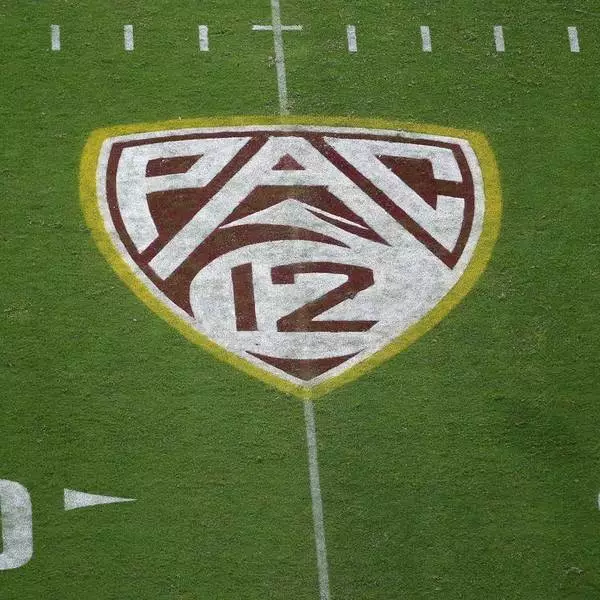
Pac-12 files federal lawsuit against Mountain West over $43 million in 'poaching' penalties
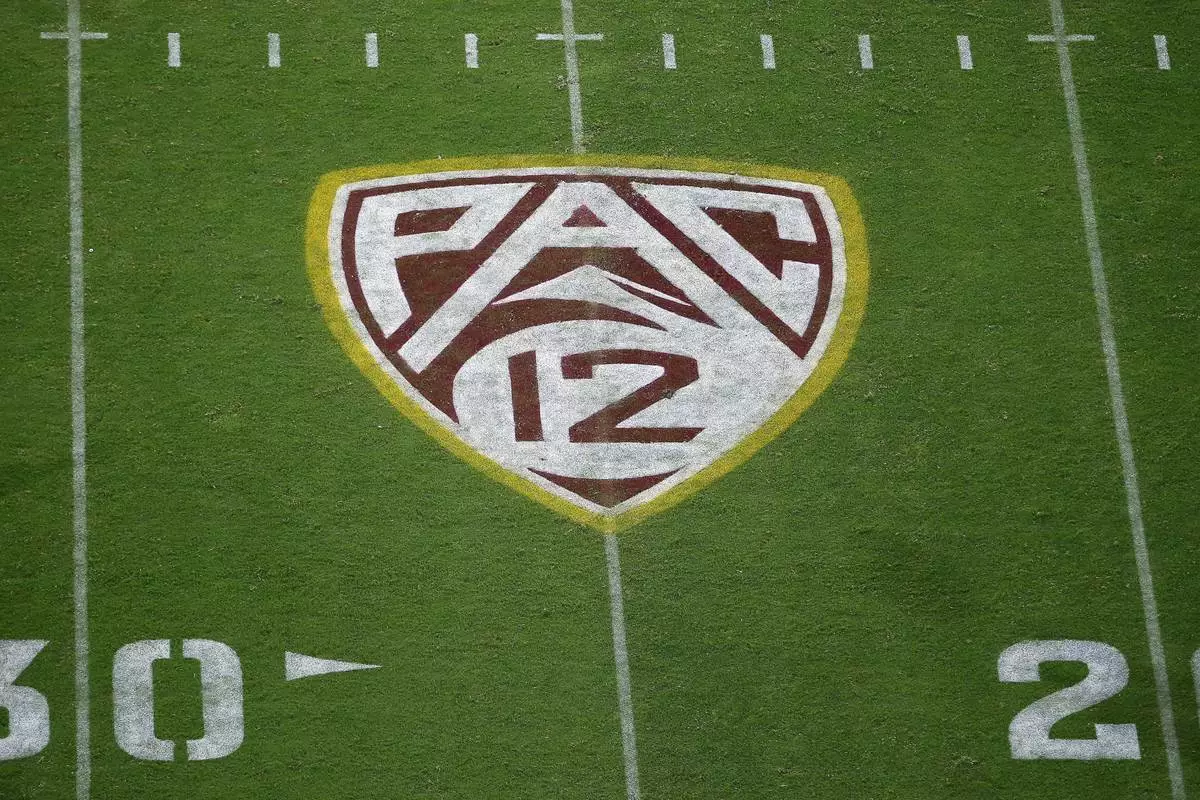
FILE - The Pac-12 logo at Sun Devil Stadium during the second half of an NCAA college football game between Arizona State and Kent State in Tempe, Ariz., Aug. 29, 2019. (AP Photo/Ralph Freso, File)
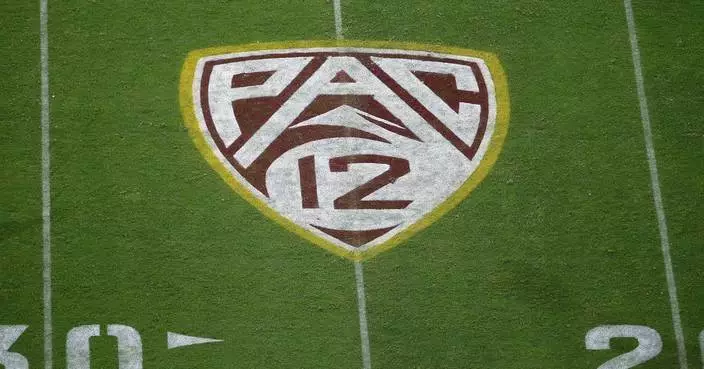
Pac-12 files federal lawsuit against Mountain West over $43 million in 'poaching' penalties
SAVANNAH, Ga. (AP) — Donald Trump on Tuesday pledged to stop U.S. businesses from shipping jobs overseas and to take other countries’ jobs and factories by relying heavily on sweeping tariffs to boost auto manufacturing — despite warnings that domestic consumers would pay more and a lack of specifics about how his plans would work.
“I want German car companies to become American car companies. I want them to build their plants here," Trump declared during a speech in Savannah, Georgia.
Trump added that, if elected, he’d put a 100% tariff on every car imported from Mexico and that the only way to avoid those charges would be for an automaker to build the cars in the U.S.
His ideas, if enacted, could cause a huge upheaval in the American auto industry. Many automakers now build smaller, lower-priced vehicles in Mexico — facilitated by a trade agreement Trump negotiated while president — or in other countries because their profit margins are slim. The lower labor costs help the companies make money on those vehicles.
German and other foreign automakers already have extensive manufacturing operations in the U.S., and many now build more vehicles here than they send. BMW, for instance, has an 8 million-square-foot campus in South Carolina that employs 11,000 people building more than 1,500 SUVs per day for the U.S. and 120 export markets. Mercedes and Volkswagen also have large factories here.
If German automakers were to increase production here, they likely would have to take it from factories in Germany, which then would run below their capacity and be less efficient, said Sam Abuelsamid, principal research analyst for Guidehouse Insights.
“It makes no sense,” he said.
Trump has sought to press Vice President Kamala Harris on the economy and has proposed using tariffs on imports and other measures to boost American industry — even as economists have cautioned that U.S. consumers would bear the costs of tariffs and other Trump proposals like staging the largest deportation operation in U.S. history.
The former president laid out a broad array of economic proposals during a speech in the key swing state of Georgia, promising to create a special ambassador to help lure foreign manufacturers to the U.S. and further entice them by offering access to federal land.
Additionally, he called for lowering the U.S. corporate tax rate from 21% to 15%, but only for companies that produce in the U.S. Harris, the Democratic nominee, wants to raise the corporate tax rate to 28%. It had been 35% when Trump became president in 2017, and he later signed legislation lowering it.
“We’re putting America first,” Trump said. “This new American industrialism will create millions and millions of jobs.”
And Trump suggested wiping away some environmental regulations to boost energy production, saying America has “got the oil, it’s got the gas. We have everything. The only thing we don’t have is smart people leading our country.”
Tuesday's series of economic proposals raised a lot of questions, but the former president hasn't given specific answers on his ideas, which could substantially affect their impact and how much they cost. He has not specified, for example, whether his U.S.-focused corporate tax cuts would apply to companies that assemble their products domestically out of imports.
Trump also suggested he use a newly created envoy, and his own personal efforts, to recruit foreign companies. But he had a spotty record in the White House of attracting foreign investment. In one infamous case, Trump promised a $10 billion investment by Taiwan-based electronics giant Foxconn in Wisconsin, creating potentially 13,000 new jobs, that the company never delivered.
His calls to offer federal land, meanwhile, might clash with Bureau of Land Management restrictions on foreign entities looking to lease lands. It also wasn't clear whether companies from China would be excluded, given Trump's longtime accusations that China is hurting American business.
The Republican presidential nominee unveiled his plan in Savannah, which has one of the busiest ports in the country for cargo shipped in containers. It was his first visit since his feud with Republican Brian Kemp, came to an end last month with the popular Georgia governor finally endorsing Trump.
But Kemp skipped Trump's rally and instead was campaigning Tuesday in Pennsylvania with Republican Senate candidate David McCormick.
Some Republicans have said they fear Georgia has gotten more politically competitive in the two months since Harris launched her presidential bid after President Joe Biden abandoned his reelection efforts.
Georgia Lt. Gov. Burt Jones assailed Harris for calling Trump a threat to democracy. Jones served as a fake elector and falsely attested that Trump won the 2020 election he actually lost to Biden. A special prosecutor, however, declined to move forward with criminal charges against Jones in the matter.
Heather Mathis, 43, came to Tuesday's event with her 11-year-old daughter and said Kemp had done “a fine job." She said she didn't think any problems between the governor and Trump would harm the former president’s Georgia chances.
“Many people have personality differences. It doesn’t make any of them bad,” Mathis said. “Maybe they just don’t get along, and that’s OK.”
Weissert reported from Washington and Krisher reported from Detroit. Associated Press writer Jill Colvin in Indiana, Pennsylvania, contributed to this report.
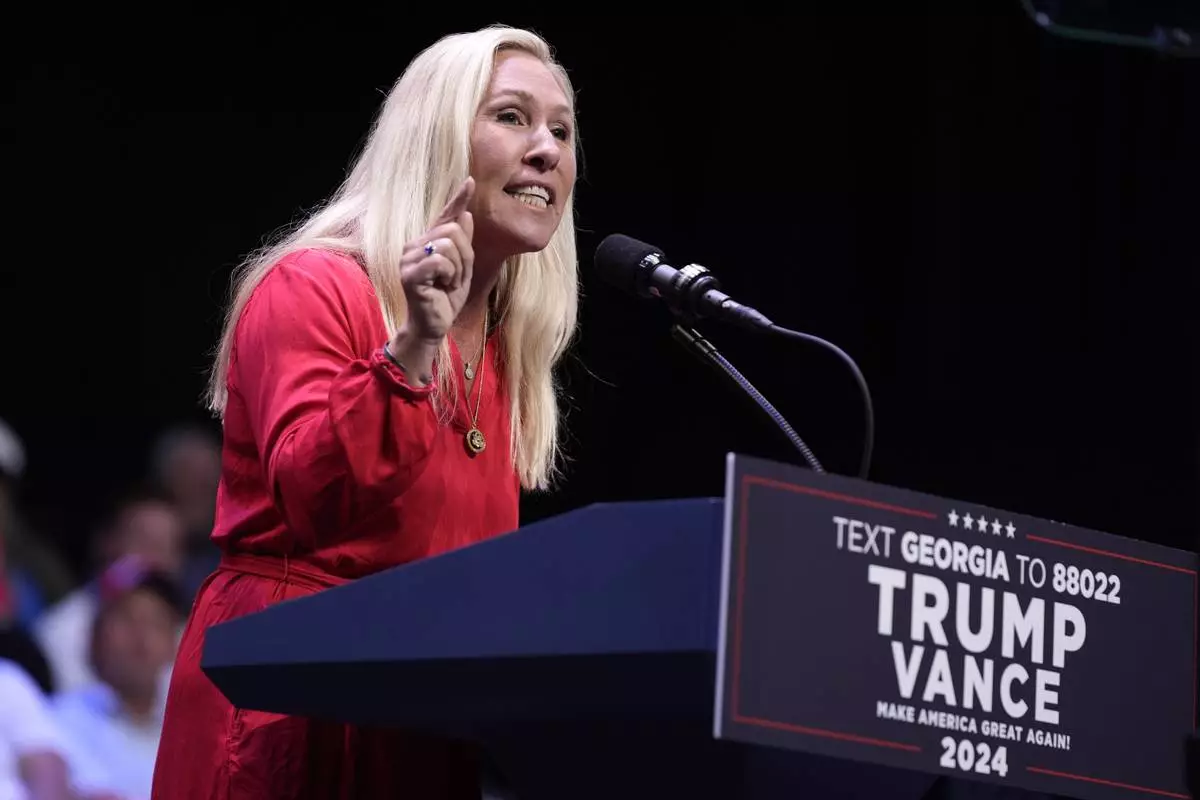
Rep. Marjorie Taylor Greene, R-Ga., speaks before Republican presidential candidate former President Donald Trump arrives to deliver remarks on the tax code, and manufacturing at the Johnny Mercer Theatre Civic Center, Tuesday, Sept. 24, 2024, in Savannah, Ga. (AP Photo/Evan Vucci)
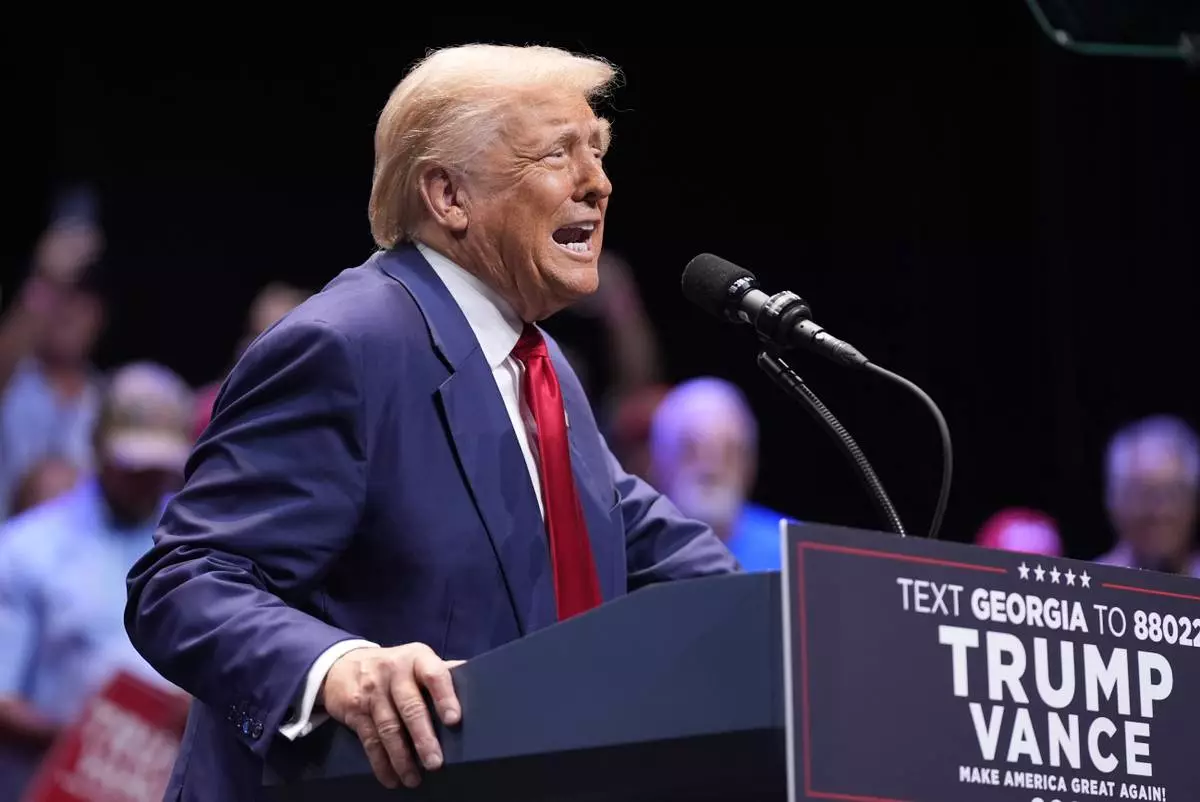
Republican presidential nominee former President Donald Trump speaks about the tax code and manufacturing at the Johnny Mercer Theatre Civic Center, Tuesday, Sept. 24, 2024, in Savannah, Ga. (AP Photo/Evan Vucci)
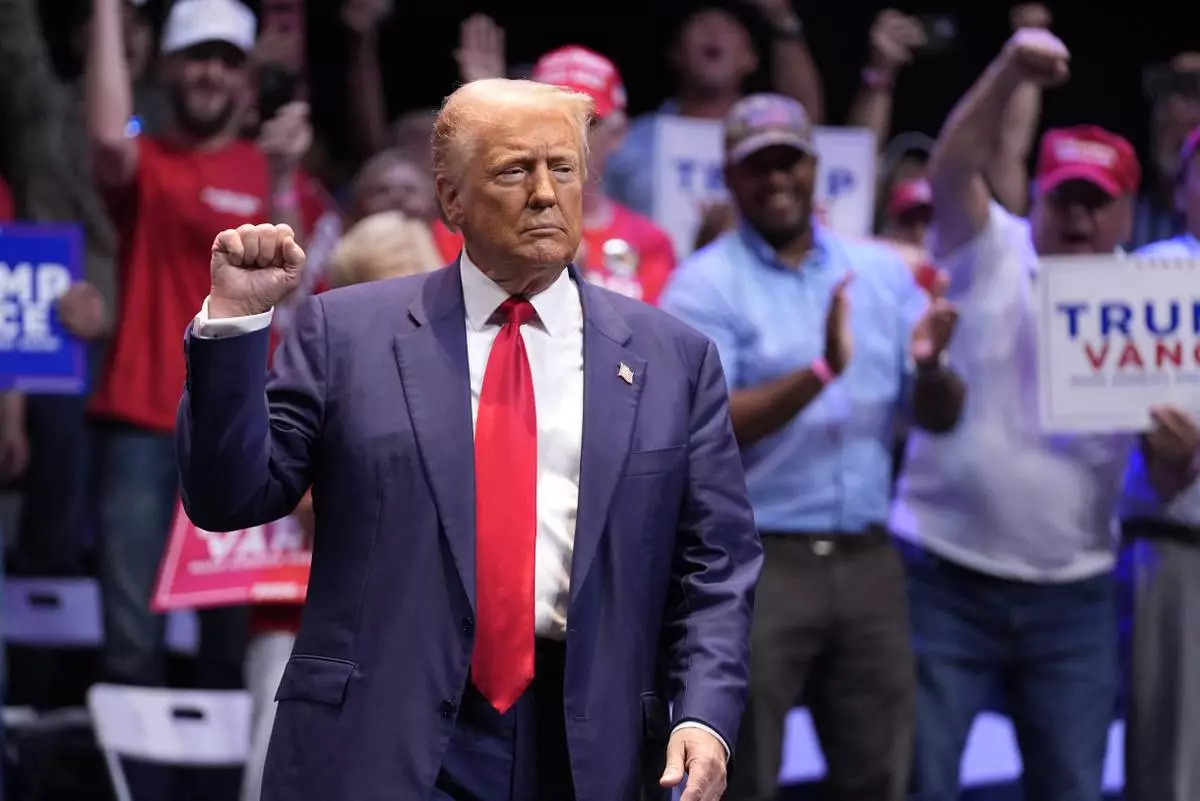
Republican presidential nominee former President Donald Trump arrives to speak about the tax code and manufacturing at the Johnny Mercer Theatre Civic Center, Tuesday, Sept. 24, 2024, in Savannah, Ga. (AP Photo/Evan Vucci)
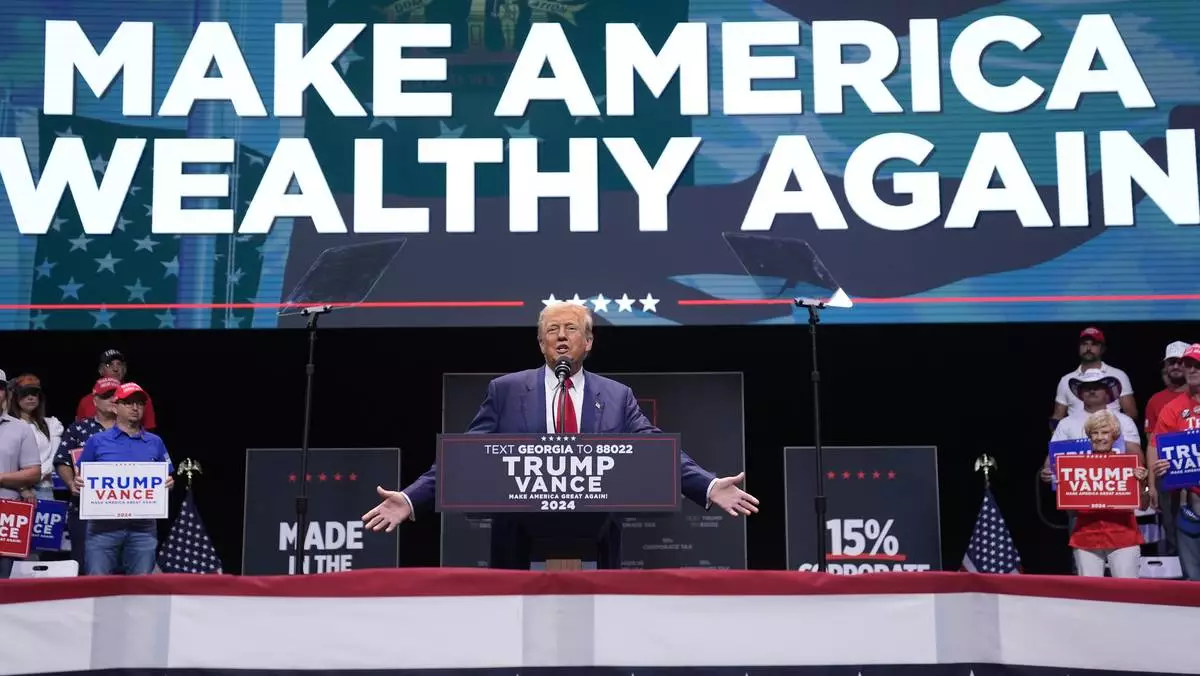
Republican presidential nominee former President Donald Trump speaks about the tax code and manufacturing at the Johnny Mercer Theatre Civic Center, Tuesday, Sept. 24, 2024, in Savannah, Ga. (AP Photo/Evan Vucci)
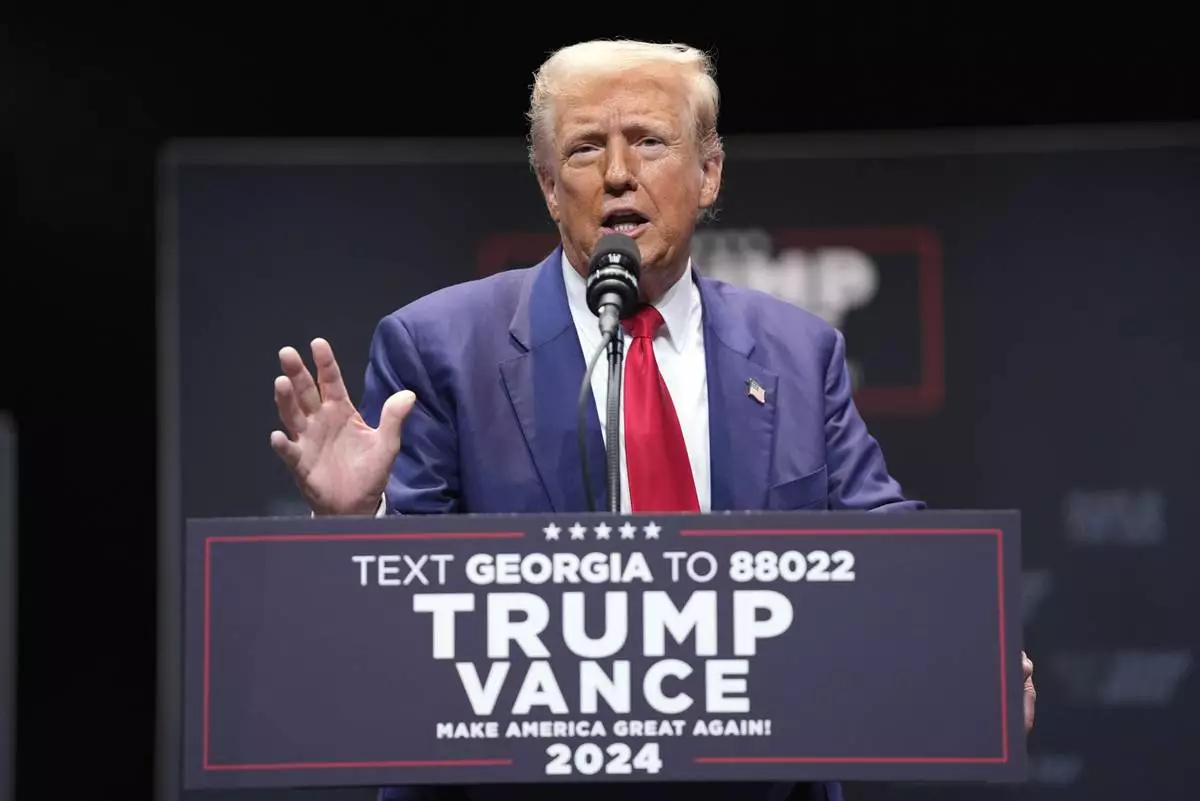
Republican presidential nominee former President Donald Trump speaks about the tax code and manufacturing at the Johnny Mercer Theatre Civic Center, Tuesday, Sept. 24, 2024, in Savannah, Ga. (AP Photo/Evan Vucci)
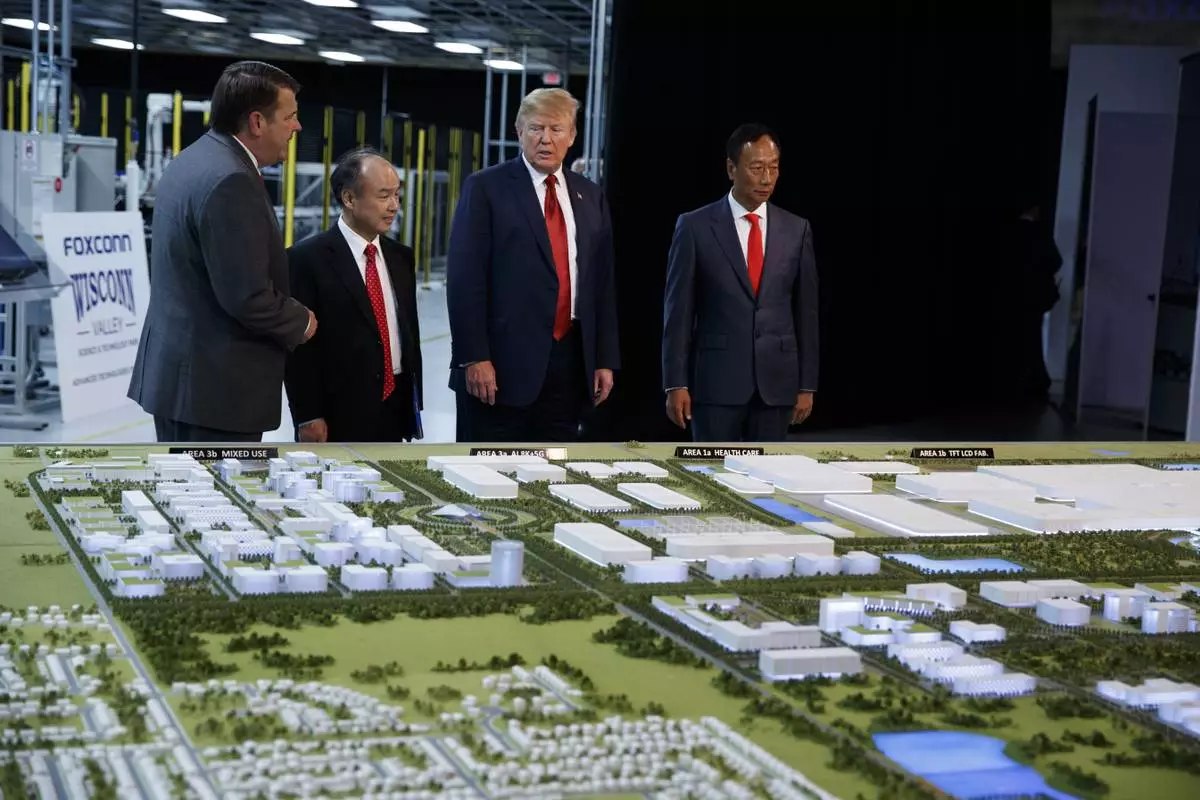
FILE - President Donald Trump tours a Foxconn facility, June 28, 2018, in Mt. Pleasant, Wis. (AP Photo/Evan Vucci, File)
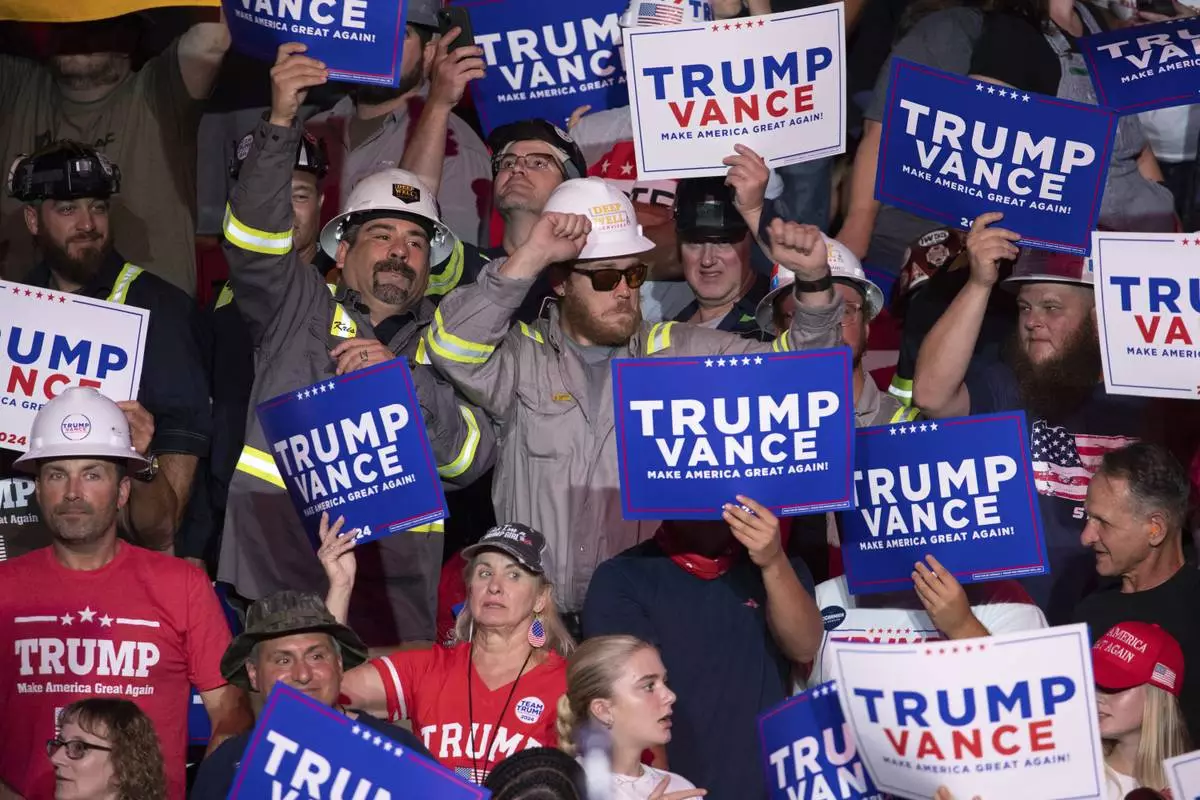
Members of the crowd dance as they wait for Republican presidential nominee former President Donald Trump to begin speaking during a campaign rally at Ed Fry Arena in Indiana, Pa., Monday, Sept. 23, 2024. (AP Photo/Rebecca Droke)
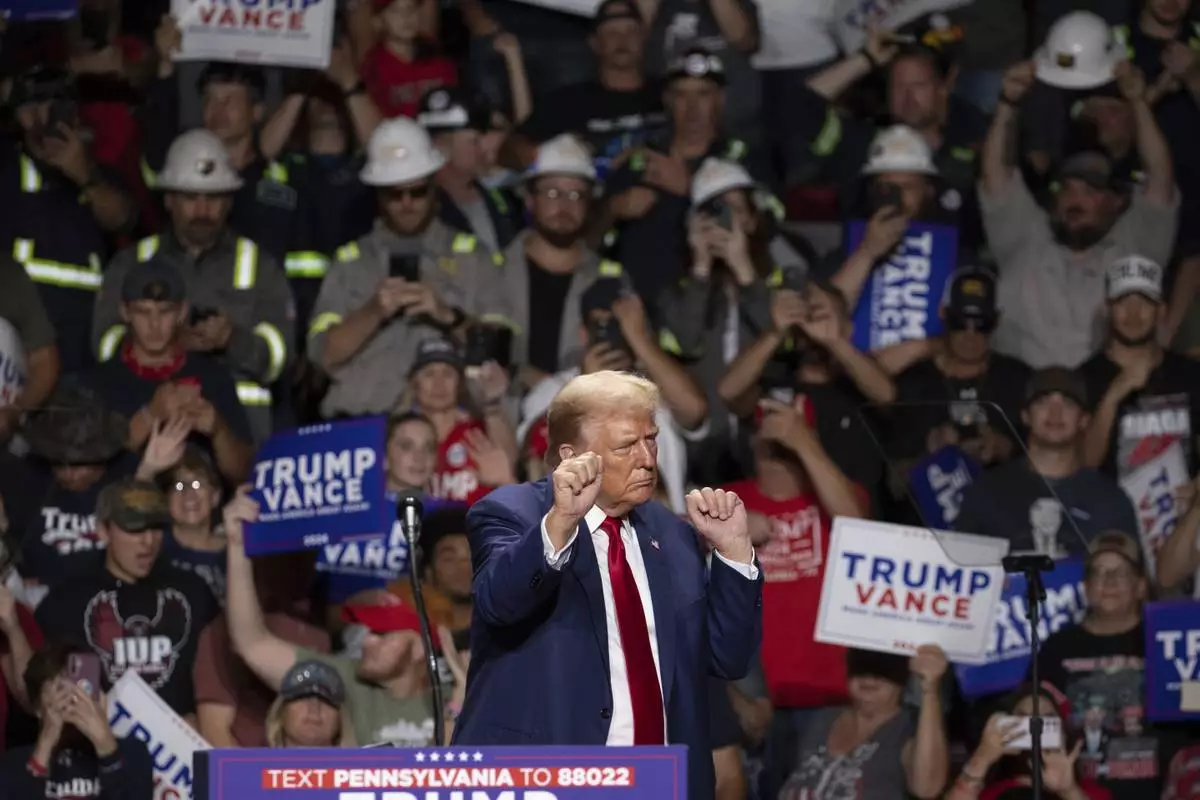
Republican presidential nominee former President Donald Trump dances after finishing his remarks at a campaign rally at Ed Fry Arena in Indiana, Pa., Monday, Sept. 23, 2024. (AP Photo/Rebecca Droke)
















